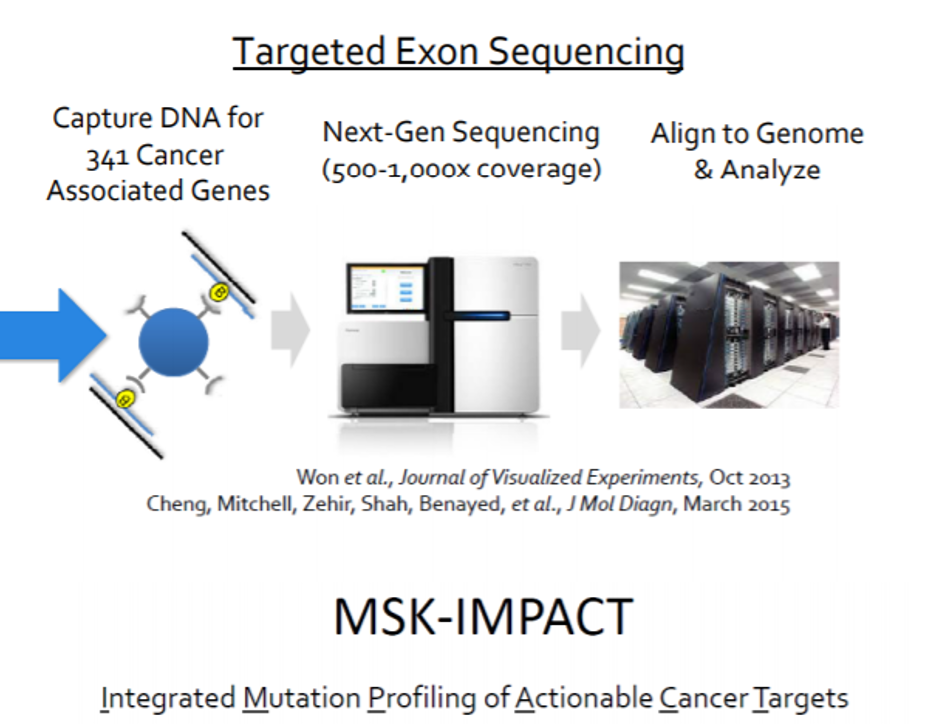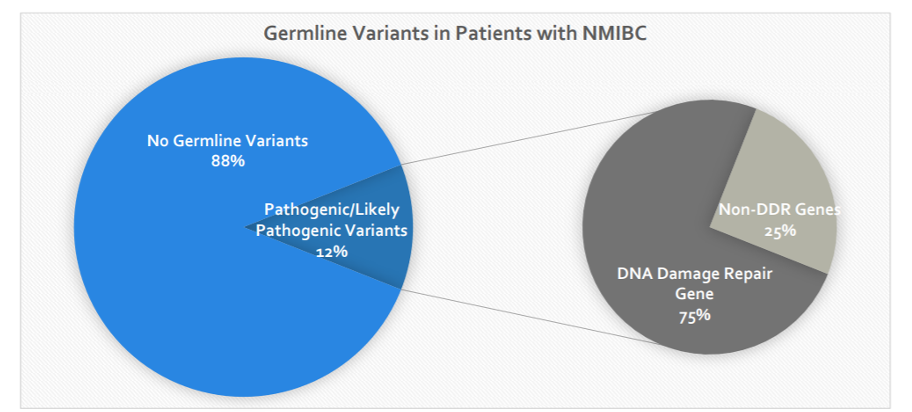The authors utilized a clinically annotated cohort of 100 patients with NMIBC that we had previously reported on their somatic mutational spectrum. These patients were unselected for inherited cancer syndromes suggesting that the results would not be enriched compared to the standard clinical population. Patients were prospectively enrolled in a protocol for molecular profiling of tumor-normal DNA pairs using next-generation sequencing within a CLIA-certified lab (NCT01775072).
In the analysis presented at this year’s AUA Annual Meeting, Dr. Pietzak and colleagues performed germline variation analysis on pathogenic or likely pathogenic (P/LP) germline variants in a panel of 82 genes associated with hereditary cancer predisposition were assessed in accordance with recommendations of the American College of Medical Genetics and Genomics.

Among 100 patients in the cohort, the authors identified a total of 12 with P/LP germline variants. Notably, results varied by tumor grade: P/LP germline variants were identified in 12 (15.7%) patients with high-grade NMIBC (n = 76) and 0 patients with low-grade NMIBC (n = 24).
The majority of identified variants were in DDR genes: nine (11.8%) patients with high-grade NMIBC had P/LP variants in DDR genes. Of these, four were in nucleotide excision repair genes (ERCC2 [2] and ERCC3 [2]) and four were in homologous recombination repair genes (BRCA1 [1], BARD1 [1], RAD50 [1], and RECQL4 [1]).
An additional patient had a P/LP germline mutation SDHA and two others had P/LP low-penetrance germline mutations in FH and APC.
In spite of these germline cancer predisposition characteristics, none of these 12 patients had early-onset disease (≤ 45 years at diagnosis) or a family history of urothelial cancer. However, these germline variants were associated with a higher frequency of nonurothelial cancers (15% vs. 42%), Ashkenazi Jewish ancestry (27% vs .42%), and multifocal tumors at initial diagnosis (42% vs. 75%).
The authors conclude that germline variants are more common than anticipated in high-grade NMIBC and may have important implications for treatments (targeting DNA repair), counseling, screening, and prevention.
Presented by: Eugene Pietzak, MD, Surgeon, Memorial Sloan Kettering Cancer Center, New York, New York
Co-Authors: Maria Carlo, Preethi Srinivasan, Chai Bandlamudi, Vijai Joseph, Aleksandra Walasek, Timothy Clinton, Nima Almassi, Michal Wiseman, Aliya Khurram, Aditya Bagrodia, Eugene Cha, Diana Mandelker, Yelena Kemel, Liying Zhang, Zsofia Stadler, Michael Walsh, Karen Cadoo, Guido Dalbagni, Hikmat Al-Ahmadie, Jonathan Rosenberg, David Solit, Gopa Iyer, Barry Taylor, Michael Berger, Kenneth Offit, Dean Bajorin, Mark Robson, and Bernard Bochner
Written by: Christopher J.D. Wallis, MD, PhD, Urologic Oncology Fellow, Vanderbilt University Medical Center, Nashville, Tennessee, Twitter: @WallisCJD at the 2020 American Urological Association (AUA) Annual Meeting, Virtual Experience #AUA20, June 27- 28, 2020


